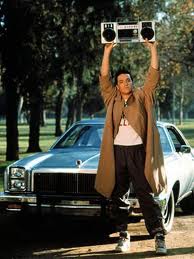 I’ll bet you’ve had the feeling, more than once in your life, of being completely unsure of what to do next. Everyone does. Sometimes the feeling is so overwhelming that it takes an extreme act of will to break through.
I’ll bet you’ve had the feeling, more than once in your life, of being completely unsure of what to do next. Everyone does. Sometimes the feeling is so overwhelming that it takes an extreme act of will to break through.
What I’m talking about here is distinct from The Naugahyde Soul. This is a case of, “There are so many things I need to do, but I don’t know where to start.” You feel them lurking in the background whispering to you, “When are you going to finish your taxes? When will you finish painting the bedroom? When will you start the next chapter of your book? When? When? When??”
The sheer number of pressing concerns causes us to panic or it may be the futile feeling that once we embark on a new project, it will turn out to be a waste of time. Maybe so. Deep down though, we know we need to make a start regardless of how it all turns out in the end. Maybe we have failed so miserably in the past that we can’t muster the courage to try.
A wise man once told me that, “When you don’t know what to do, do what you know to do.” Simple, solid advice. We all know what we need to do, we merely need to begin. Sure, it may not feel like you’re making headway, but I guarantee you, there will come a moment when you look up and see how much progress you’ve made.
Are there too many things that have to be tackled right now? Then pick the snake closest to you, the one that’s about to bite and kill it first. In my experience, once you take action, you realize that there was no need to panic in the first place. Everything can and will get sorted out. That new project may open doors you never dreamed of and if it doesn’t work out that way, just think of the wealth of new experience you can bank away for the future. Your past failures can be washed away with a sincere effort to try again.
The point is, to begin. And when you have begun, remember to begin again. Life is a continual battle to rouse yourself to begin again. When you’ve failed, when you’ve slowed down, when you’ve up and stopped.
There is an old story of the young monk who after falling into some sin, came to his spiritual father and said, “Abba, what shall I do, I have fallen.”
The Abba replied, “Then get up.”
“But I did get up and I’ve fallen again.”
“Then get up again.”
“Abba, how long shall I keep getting up?”
“My son,” said the old monk, “until the day you die.”




 An old grey t-shirt hangs loosely over faded blue sweat pants–I say “blue” only to indicate their present hue. They may have, once upon a time, been green. Completing this stunning ensemble is a pair of dirty white socks and untied high-top gym shoes. The wearer is lounging in all his sartorial richness in an extravagant manner on the family room sofa, engaged in his favorite pastime, watching sports on TV.
An old grey t-shirt hangs loosely over faded blue sweat pants–I say “blue” only to indicate their present hue. They may have, once upon a time, been green. Completing this stunning ensemble is a pair of dirty white socks and untied high-top gym shoes. The wearer is lounging in all his sartorial richness in an extravagant manner on the family room sofa, engaged in his favorite pastime, watching sports on TV.